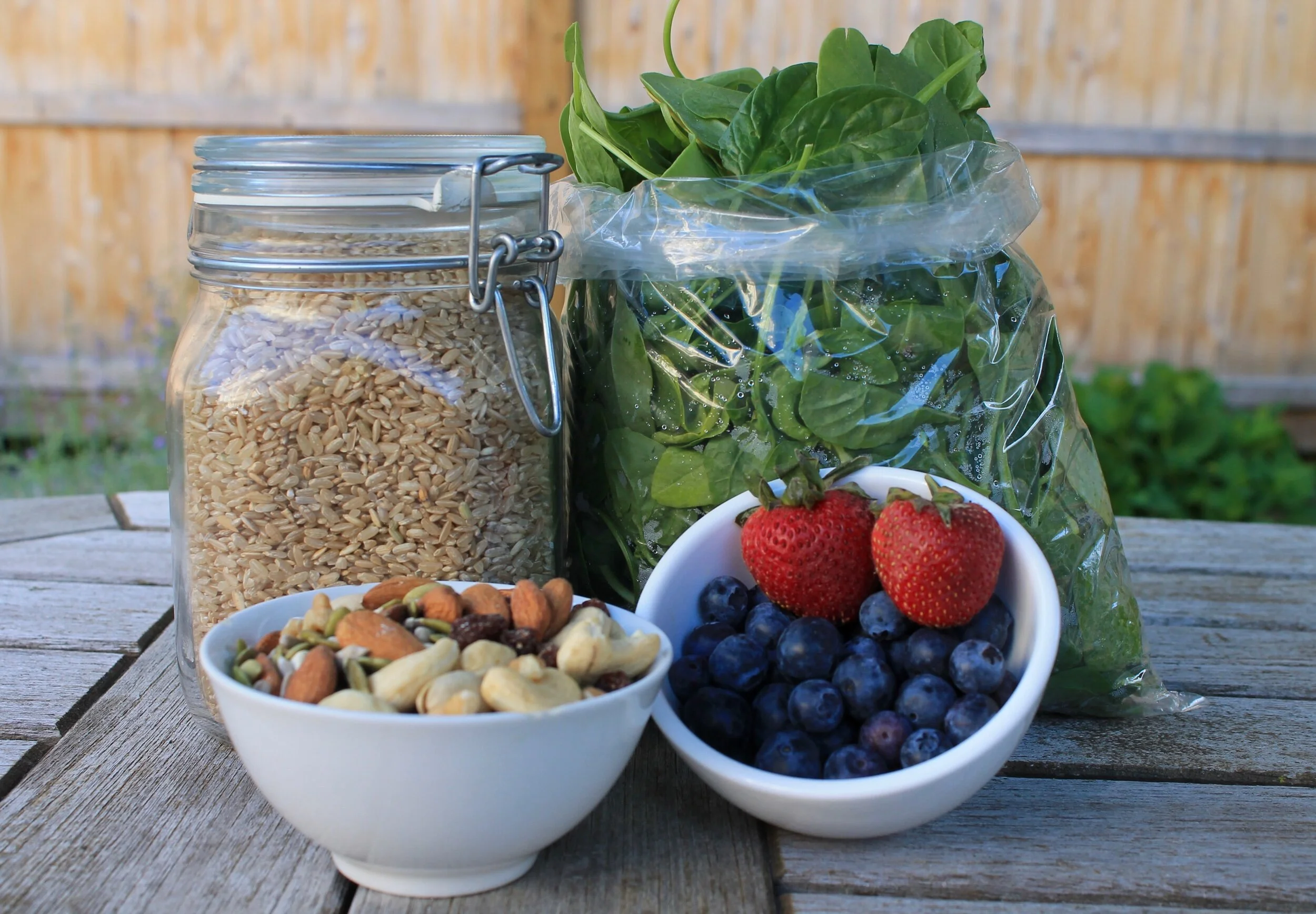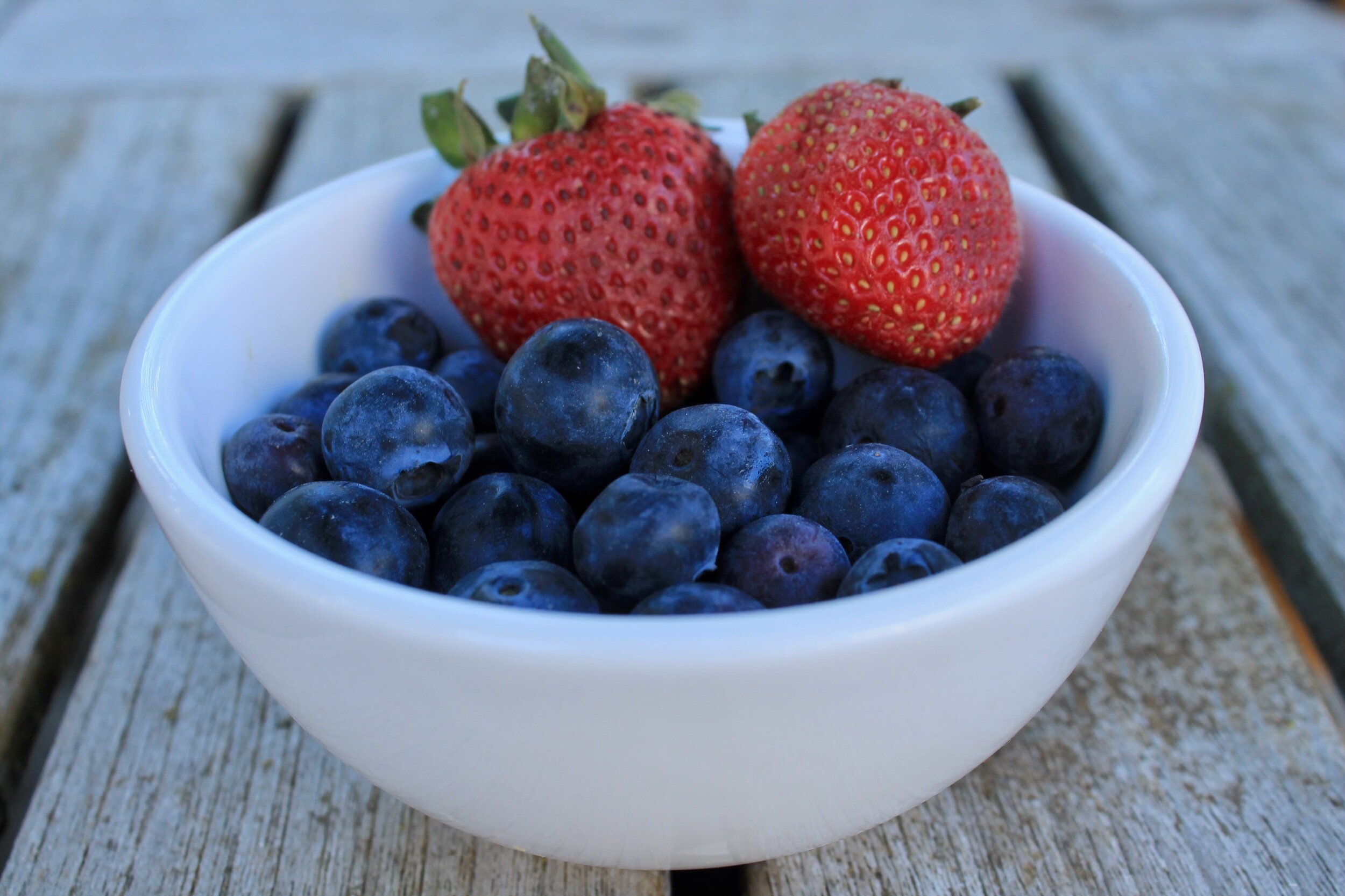What are Superfoods?
Superfoods are foods that have a very high nutritional density. This means that there is a higher concentration of nutrients per number of calories. They also contain a high volume of minerals, vitamins, and antioxidants. While these foods are often touted as being healthful, there are no set criteria for determining what defines a superfood. Despina Hyde, a registered dietician with the weight management program at New York University's Langone Medical Center, was quoted in Live Science saying “As a dietician, I think 'superfood' is more of a marketing term for foods that have health benefits”. While these foods may not be a cure all, they are certainly still worth learning more about.
What are some common “superfoods”?
Blueberries: Blueberries are a commonly listed superfood as they are rich in vitamins, soluble fiber and phytochemical. Phytochemicals also known as flavonoids were shown in the journal, Circulation, to reduce the risk of certain heart conditions in young women. While these phytochemicals are found in many other kinds of berries including strawberries and cranberries, blueberries are more frequently studied and so are more often found within superfood lists.
Kale: This superfood has come into the spotlight recently as its dark leafy greens pack a nutrient rich punch. This is also true for many other dark leafy greens such as Swiss chard, spinach, cabbage, collards, and mustard. These dark greens are loaded with vitamins A, C and K as well as fiber, calcium and other minerals. Definitely worth including in your diet!
Sweet Potatoes: For reasons similar to those of leafy greens, sweet potatoes and squash generally make the superfood list. They are excellent sources of fiber, vitamins B and C, and many minerals including iron, calcium and selenium. They also contain the antioxidant beta-carotene which converts to vitamin A once digested.
Beans: These “nuggets of nutrition” are a great source of low-fat protein. They also contain insoluble fiber, soluble fiber, many vitamins and trace minerals (such as manganese) often absent from the typical American diet.
Whole Grains: Unlike refined grains whole grains aren’t stripped of the nutrient-containing bran and germinating parts during processing. Similar to other superfoods, whole grains are a good source of fiber. According to the Mayo Clinic they are also filled with important nutrients such as B vitamins, iron, folate, selenium, potassium and magnesium.
Salmon: Fatty fish such as salmon, sardines and mackerel are rich in omega-3 fatty acids. Omega-3 fatty acids are important components of the membranes that surround each cell in your body. They are also thought to lower the risk of heart disease and stroke. Though they are essential, our bodies don’t produce them meaning they must be ingested.
While each of these foods has clear health benefits, it is important to point out that the way in which they are consumed and processed is equally if not more important. A clear example of this is green tea. When green tea is freshly brewed, it has several antioxidants. Commercially manufactured bottled green teas, however, are often diluted with inferior teas and brewed with copious amounts of sugar.
Because the term "superfood" is not scientific, it can mislead consumers, prompting them to eat one kind of food over another. As can be seen above, something like the blueberry may receive a lot of attention because they are more widely studied. This may prompt more people to consume blueberries, not realizing that strawberries are just as healthful. Additionally, because of their marketing many people believe superfoods can be eaten in unlimited quantities or have unrealistic expectations about these foods, thinking they’ll be protected from chronic diseases and health problems.
If you are new to healthy food, superfoods may be the perfect place to start. Well researched and accessible, these foods may be easily incorporated into your current diet. There are however, lots of healthy foods out there to explore, even if no one is calling them “super.”
All photography by April Mcilwaine



